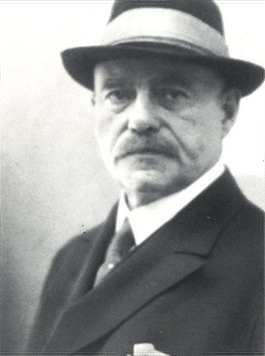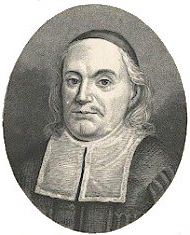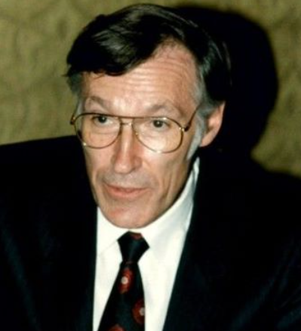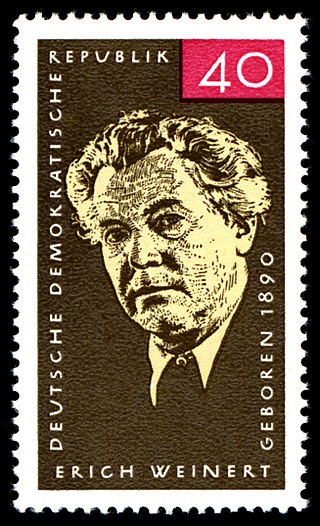| Righteous Among the Nations |
|---|
 |
| By country |
Edwin Tietjens (20 March 1894, Saint Petersburg - 22 May 1944) was a psychiatrist in Berlin in the 1920s and 1930s and resistance fighter against the Nazis.
| Righteous Among the Nations |
|---|
 |
| By country |
Edwin Tietjens (20 March 1894, Saint Petersburg - 22 May 1944) was a psychiatrist in Berlin in the 1920s and 1930s and resistance fighter against the Nazis.
Tietjens had a doctorate in philosophy. In 1926 he became the fourth husband of Luigina von Fabrice. [1] His 1929 book Desuggestion, translated into English, was widely reviewed. In 1943 Tietjens and his wife Gina hid a Jewish shoe worker, Ruth Heynemann, and her mother, finding them false papers and taking care of them in their Berlin house. After Tietjens died of a heart attack, his wife continued to look after the women until the Russian army arrived. For this they have been recognized as among the Righteous Among the Nations. [2]

Hermann Sudermann was a German dramatist and novelist.

Paul Gerhardt was a German theologian, Lutheran minister and hymnodist.

Karl August Varnhagen von Ense was a German biographer, diplomat and soldier.

Ernst Alfred Cassirer was a German philosopher. Trained within the Neo-Kantian Marburg School, he initially followed his mentor Hermann Cohen in attempting to supply an idealistic philosophy of science.

Walter Burkert was a German scholar of Greek mythology and cult.

Gottfried von Einem was an Austrian composer. He is known chiefly for his operas influenced by the music of Stravinsky and Prokofiev, as well as by jazz. He also composed pieces for piano, violin and organ.

Erich Mendelsohn ; 21 March 1887 – 15 September 1953) was a German-British architect, known for his expressionist architecture in the 1920s, as well as for developing a dynamic functionalism in his projects for department stores and cinemas. Mendelsohn was a pioneer of the Art Deco and Streamline Moderne architecture, notably with his 1921 Mossehaus design.

Horst Janssen was a German draftsman, printmaker, poster artist and illustrator. He had a prolific output of drawings, etchings, woodcuts, lithographs and wood engravings.
Werner Egk, born Werner Joseph Mayer, was a German composer.

Hermann Georg Jacobi was an eminent German Indologist.

Hans Gustav Adolf Hellmann was a German theoretical physicist.

Georg Friedrich Knapp was a German economist who in 1905 published The State Theory of Money, which founded the chartalist school of monetary theory, which argues that money's value derives from its issuance by an institutional form of government rather than spontaneously through relations of exchange.

Erich Bernhard Gustav Weinert was a German Communist writer and a member of the Communist Party of Germany (KPD).
Ottfried Neubecker was a German vexillologist and heraldist.
Paul Tietjens was an American composer of the early twentieth century. He is best known for composing music for The Wizard of Oz, the 1902 stage adaptation of L. Frank Baum's The Wonderful Wizard of Oz, one of the great popular hits of its era.

Jaro Fürth was an Austrian stage and film actor.

Heinrich Albert Schnee was a German lawyer, colonial civil servant, politician, writer, and association official. He served as the last Governor of German East Africa.
Die heilige Ente: ein Spiel mit Göttern und Menschen is an opera with a prelude and three acts by the composer Hans Gál, to a libretto by Karl Michael Leventzow and Leo Feld. Written in 1920–21, it was premiered in Düsseldorf on 29 April 1923 under the baton of Georg Szell.
Josef von Manowarda was an Austrian operatic singer.
Edwin Hoernle was a German politician (KPD), author, educator, agricultural economist and a Marxist theoretician. He spent the Nazi period in Moscow where, during the final years of the Second World War, he was a founding member in July 1943 of the Soviet-backed National Committee for a Free Germany .